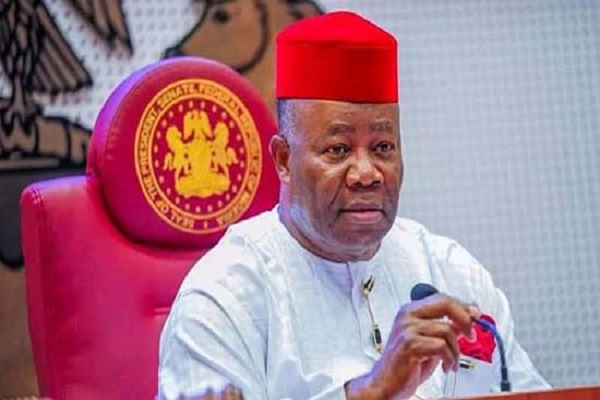A contentious debate has erupted regarding the 2019 Akwa Ibom North-West senatorial election and the role of current Senate President Godswill Akpabio. A coalition of 56 civil society organizations (CSOs), including prominent groups like SERAP and HEDA, has called for Akpabio’s resignation, citing the 2021 conviction of the former returning officer, Professor Peter Ogban, for electoral malpractice. This coalition argues that Ogban’s conviction implicates Akpabio in the election rigging. However, a separate coalition of five northern-based CSOs has vehemently defended Akpabio, asserting that he was a victim, not a beneficiary, of the electoral fraud. This counter-narrative has sparked a broader discussion about the accuracy of information surrounding the election and the implications for Nigerian democracy.
The core of the disagreement lies in the interpretation of court judgments and the sequence of events surrounding the 2019 election. The 56 CSOs calling for Akpabio’s resignation appear to link Ogban’s conviction directly to Akpabio’s victory, insinuating complicity. Conversely, the northern coalition defending Akpabio highlights court records showing that Ogban initially declared Akpabio’s opponent, Chris Ekpenyong of the PDP, the winner after canceling a significant number of votes from Akpabio’s stronghold. This cancellation, they argue, constituted the electoral malpractice for which Ogban was later convicted. The northern coalition points to subsequent court rulings that nullified the initial election results and ordered a rerun, ultimately leading to Akpabio’s victory.
The northern coalition emphasizes that both the Election Tribunal and the Court of Appeal nullified the initial results due to “proven malpractice,” specifically Ogban’s manipulation of the vote count. They stress that the Court of Appeal’s upholding of Ogban’s conviction further validates their claim that the fraudulent acts were perpetrated against Akpabio, not in his favor. The coalition views the calls for Akpabio’s resignation as a misrepresentation of the facts established by the courts and a disservice to the democratic process. They accuse commentators and activists of failing to consult the court judgments and propagating a false narrative detrimental to Akpabio’s reputation.
The northern coalition’s defense of Akpabio hinges on the assertion that he was a victim of electoral manipulation, not a perpetrator. They argue that Ogban’s actions, by canceling votes predominantly from Akpabio’s support base, were designed to benefit his opponent. The coalition insists that focusing on the conviction without acknowledging the context of the nullified election and subsequent rerun creates a distorted picture of the events. They criticize media outlets and legal commentators for allegedly misrepresenting the facts and contributing to the spread of misinformation.
The clashing interpretations of the court proceedings and the resulting accusations have raised concerns about the reliability of information disseminated in the public sphere. The northern coalition accuses certain media outlets, commentators, and activists of neglecting due diligence in verifying facts before making public statements. They argue that this rush to judgment not only undermines Akpabio’s reputation but also erodes public trust in democratic processes. The coalition insists that a commitment to fact-based reporting is essential for a healthy democracy and calls for greater accountability among those who disseminate information to the public.
This controversy highlights the importance of accurately interpreting legal proceedings and emphasizing the context within which they occur. The northern coalition contends that presenting Ogban’s conviction without acknowledging the full sequence of events, including the initial declaration of Akpabio’s opponent as the winner and the subsequent nullification of the election, creates a misleading narrative. They argue that this selective presentation of information unfairly portrays Akpabio as a beneficiary of electoral fraud when, according to court rulings, he was the one disadvantaged by the manipulation. This case underscores the need for careful scrutiny of legal proceedings and the importance of understanding the broader context when interpreting such events. The coalition further urges the public, especially journalists and lawyers, to consult court documents and verify information before forming conclusions or making public statements. They warn that allowing false narratives to dominate public discourse undermines the principles of democracy and erodes public trust in institutions.














